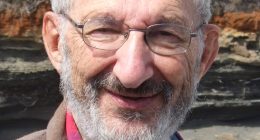
For the new study, which was published in August in Current Biology, some of the scientists involved in the initiative set out to see what happens to our metabolisms when we move. They pulled data for 1,754 adults that included their doubly labeled water results, as well as measures of their body compositions and basal energy expenditure, which is how many calories they burn simply by being alive, even if they otherwise are inactive. Subtracting basal numbers from total energy expenditure gave the researchers an approximation of people’s energy expenditure from exercise and other movement, such as standing, walking and general fidgeting.
Then, using statistical models, the researchers could tally whether calories burned during activity increased people’s daily energy expenditure as expected — that is, whether people burn commensurately more total daily calories when they move more. But, the researchers found, they did not tend to burn more calories. In fact, most people seemed to be burning only about 72 percent as many additional calories, on average, as would be expected, given their activity levels.
“People appear to be energy compensating for additional calories burned through activity by at least a quarter,” said Lewis Halsey, a professor of life and health sciences at the University of Roehampton in London and one of the lead authors of the new study.
Unexpectedly, the researchers also found that energy compensation levels increased among people with relatively high levels of body fat. They tended to compensate for 50 percent or more of the calories they burned by being active.
It is important to point out that the study did not look at people’s food intake. It concentrated solely on energy outlay and how our bodies seem able to offset some of the calories burned during exercise by reducing biological activity elsewhere in the body. Just how we unconsciously orchestrate this feat, though, and which internal systems could be most affected remain unclear, Dr. Halsey said. He and his colleagues speculate that immune system operations, which require considerable energy, may get dialed down somewhat. Or we could unknowingly fidget less or otherwise grow more sedentary, over all, on days we exercise. Perhaps, too, some of the inner workings of our cells may slow, reducing our bodies’ overall energy expenditure.
But the new science of exercise and calorie compensation is not completely discouraging. Even people whose bodies compensate for 50 percent or more of the calories they expend during physical activity will burn more calories per day than if they remain still, Dr. Halsey pointed out. A more intractable problem with using exercise for weight loss, he continued, is that exercise realistically burns few calories, period. To drop pounds, we also will have to eat less.
“Half a cookie or half a can of cola” after a half-hour walk, and you will have taken in more calories than you burned, he said, however much or little you compensate.
Source: Source: NYT








